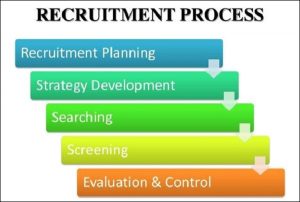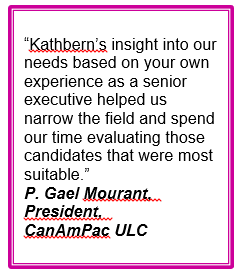In the power dynamic with prospective employees, employers have all the cards. They have the upper hand. Employers regularly engage in the hiring process whereas individuals do so infrequently. Employers have HR departments that specialize in managing the recruiting process. They are the ones to dictate the terms of the employment agreement and have lawyers to help them do so.
Despite the truth in most of the foregoing statements, when it comes to landing the top candidates that will make a significant difference in the success of an organization, the best candidates have a lot more cards than you might think.
 The Employer’s View
The Employer’s View
From the employer’s perspective, everything in the first paragraph above is true. If the employer has an open position which needs to be filled by the best available candidate (within budget guidelines), the position is assumed to be a valuable opportunity which will be attractive to many potential candidates.
Various people on the employer’s team who are involved in the hiring process will have different responsibilities relating to filling this role.
The typical process:
-
- HR will post the position online and screen applicants as they come in to filter out those who are clearly unqualified.
- Those who most closely fit the hiring criteria will be forwarded to the hiring manager who will review their résumés and advise HR as to which candidates should be contacted for an interview.
- Sometime later, the hiring manager will interview candidates virtually or in person.
- Still later, the hiring manager will arrange for a second interview with the top one or two candidates (perhaps with others in the organization).
- Personality assessments or other psychological assessments may be required of the candidates.

- Sometime later, if one of the candidates has met the hiring criteria, an offer of employment (subject to satisfactory references) will be drafted, signed by the hiring manager and sent to the chosen candidate.
- If the candidate accepts the offer and returns it, the hiring manager or HR will conduct reference checks.
- If the reference checks do not raise any concerns, the condition in the offer with respect to reference checks will be waived and the offer of employment will be deemed to have been accepted and confirmed by both parties.
- Mission accomplished.
- HR will post the position online and screen applicants as they come in to filter out those who are clearly unqualified.
The Candidate’s View
In the first place, the employer’s assumption that the open position will be received with enthusiasm by the vast majority of qualified candidates is overly optimistic. If the position is advertised on one of the many online job sites, the chance of it being seen is dependent on the audience size, which is governed by the frequency and variety of ad placements, which are dependent on the level of spending chosen to support the ad campaign. Few candidates will ever see a free ad placement.
For candidates, reviewing and responding to job ads is boring and soul-destroying work. They almost never get a reply to their submissions. For that reason, the only people looking at job ads are typically those who are unemployed or seriously unhappy with their current employment. That leaves out a very large segment of qualified candidates who are currently employed, busy with their life and not unhappy enough with their current situation to be looking at job ads.
For those who ARE looking and who reply to the employer’s job ad or enter the process in another way (such as through being contacted by an associate or actively recruited by a recruiting firm), many will take a “portfolio” approach to their job search.
Read More: Recruiting Is Also A Numbers Game
 Using this approach, candidates who are in job search mode will contact many companies and actively work their way through each employer’s recruiting process – screening interview, first full interview, second full interview, assessments, sometimes even submitting to background checks even before seeing an offer. They may be simultaneously in process at different stages with 5 or 6 employers, hoping to get an offer from their favourite before they get an offer from a less favoured potential employer. If they do get an offer from their B or C choice, they will try to stall long enough to let the process with a more favoured employer mature to the point where they receive another offer to consider. Employers who put a tight deadline for the acceptance of an offer tend to frustrate this tactic and limit the ability of candidates to “shop” an offer to other prospective employers.
Using this approach, candidates who are in job search mode will contact many companies and actively work their way through each employer’s recruiting process – screening interview, first full interview, second full interview, assessments, sometimes even submitting to background checks even before seeing an offer. They may be simultaneously in process at different stages with 5 or 6 employers, hoping to get an offer from their favourite before they get an offer from a less favoured potential employer. If they do get an offer from their B or C choice, they will try to stall long enough to let the process with a more favoured employer mature to the point where they receive another offer to consider. Employers who put a tight deadline for the acceptance of an offer tend to frustrate this tactic and limit the ability of candidates to “shop” an offer to other prospective employers.
Candidates are also not above using a prospective employer’s offer to leverage their current employer into providing a promotion or salary increase if they can. Some candidates will extend their availability to receive another offer to the point of actually accepting a less favoured offer as insurance and then, if the hoped for offer finally materializes, either not show up on the agreed start date or else resign a short time after assuming the position.
Read More: Rising Expectations – The Power Is Shifting To Talent
What Can Employers Do to Regain Some Degree of Control?
There is an element of “cat and mouse” to the hiring process that cannot be avoided. However, there are concrete actions and techniques that can be used to improve the odds of making a successful hire.
-
- Use job ads, if you must, but also engage the services of an active recruiting firm that will reach out to qualified passive candidates who are not actively reviewing job ads.
- Don’t start the hiring process if you are not prepared to move quickly in dealing with all candidates who emerge, otherwise the best ones will always be lost to a more agile employer.
- Don’t focus on one favoured candidate. If possible, move 2 or 3 good candidates through all stages of the process so that you still have a choice at the end.

- In an attempt to protect against the possibility of the chosen candidate caving in to an improved offer from their existing employer, ask them the following question, “When you give your current employer notice of your resignation, what will you say when they offer you more money or a promotion in order to get you to stay?” This won’t guarantee that they don’t cave in to their current employer’s offer, but it will prepare the ground ahead of time. You can also suggest that if their current employer values them so much, why haven’t those improved conditions already been offered?
- When it comes to the offer, make sure that the offer is issued with a condition as to the provision of satisfactory references. The candidate should be asked to accept the offer prior to the completion of the reference checks. Once the offer has been accepted by the candidate it can still be rescinded by the employer.
- The offer should be a formal document in complete form and signed by the employer. There is no such thing as an “offer” and then a separate “employment agreement”. They are one and the same. If a candidate accepts the “offer” they cannot be asked to sign another agreement unless some consideration is provided, such as additional salary, etc. Without such consideration, the employer will be bound by the terms of the first offer– don’t do it.
- The highlights of the formal offer should be delivered verbally, in summary form, by phone just before the full text of the offer is transmitted to the candidate. The candidate’s immediate verbal reaction to the salary, start date, vacation, etc. will be indicative of any concerns that may have to be dealt with.
- The offer should have a reasonably tight deadline for a reply (2-3 business days) before it is void. You can always provide an extension if there is a good reason.
- Do not release other candidates from the process until the chosen candidate has accepted the offer and the reference checking process has been satisfactorily completed.
- Use job ads, if you must, but also engage the services of an active recruiting firm that will reach out to qualified passive candidates who are not actively reviewing job ads.
If the above process is followed carefully, always remembering that time is of the essence, employers will be ahead of their competitors when it comes to both attracting and onboarding the best candidates. Candidates have their own agendas. Employers will be in a stronger position if they realize that and take it into account.
Kathbern Management is an executive search firm based in Toronto, helping companies find the executives and senior managers who not only have the experience and credentials to fulfill their responsibilities, but also have the emotional and “fit” requirements that will enable them to be successful in a particular environment. We simplify the process and, through our deep research, are able to bring more and better candidates forward than would ever be possible through a do-it-yourself passive advertising campaign.
Contact us today for a free consultation about your key person search.

